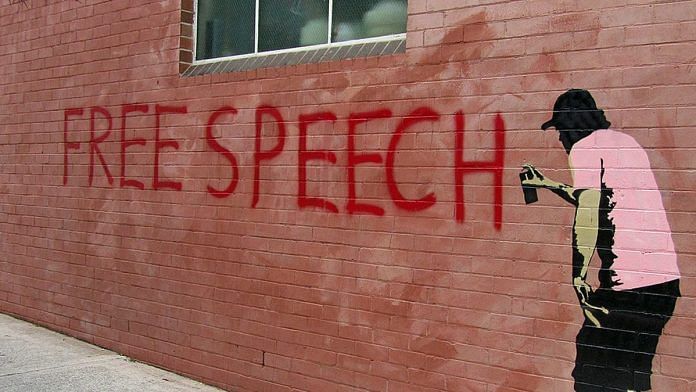
Thank you dear subscribers, we are overwhelmed with your response.
Your Turn is a unique section from ThePrint featuring points of view from its subscribers. If you are a subscriber, have a point of view, please send it to us. If not, do subscribe here: https://theprint.in/subscribe/
In the last few years, people all over the world have become more aware of their rights. With easy availability of information and almost instant spread of news, they have also become aware of wrongs being perpetrated for long on various sections of the society.
While this is a positive change, what is happening is that some people have become very vocal & sometimes strident about what is acceptable and what is not, resulting in “cancel culture” or “ban movement”, “my rights”, “my space” etc. This has further morphed into imagined rights or privileges, especially among the middle & upper middle class people and directed against the disadvantaged sections of society and people who cannot or do not fight back.
When a nation’s constitution grants its citizens the freedom of speech, does it mean that individuals can say whatever they want or are there any reasonable limits to such freedom? Can an individual criticise or ridicule the government – probably yes, in free societies. Can an individual criticise or lampoon any religion – probably yes to the extent that it does not constitute hate speech – which leads to further questions about what would constitute such “hate speech”.
Freedom of speech and expression, as a corollary, leads to freedom of artistic expression. This also leads to divisions among people – recent examples are troubles over the BBC documentary, The Kashmir Files and The Kerala Story.
In contrast, societies becoming politically correct means avoiding use of any language or actions or expressions which can cause offense to some sections of the society – maybe by gender, race, caste or colour. There are arguments both for and against such limits being forced on individuals and societies.
For example, segregation on the basis of colour of the skin or caste is certainly to be eliminated, but what about restrictions on account of religion? Should an individual following one religion be banned from entering a place of worship of another religion? What about a religion restricting parts of its’ own followers from entering a specific place of worship – as in Sabarimala temple not allowing women of reproductive age in its premises (now declared by the Supreme Court as violating constitutional freedoms).
This is now entering areas or art and literature. In the USA, parents are actively asking for old classics to be removed or banned from school syllabi. Some of the books on the list are To kill a Mockingbird, Animal Farm, The Catcher in the Rye, Tess of the D’Urbervilles, Of Mice and Men.
The argument in favour of the bans is that not exposing children to such literature protects them from harsh & distasteful subjects. The counter to this is that such exposure allows children to learn about critical life skills in a controlled and protective environment of a classroom.
There are similar campaigns to ban or modify nursery rhymes to be more in tune with the times.
As political correctness evolved, one form it has taken is of being “woke”.
The Cambridge Dictionary defines wokeism or wokery as “referring to acts & opinions of people who are specially aware of social problems such as racism and inequality, by people who do not approve of these acts and opinions”
An example from the Dictionary is cited below:
“A university has been attacked for “wokery gone mad” after it advised staff against using the terms “mother” and “father” to avoid bias.”
A question that arises and has found no simple answers is the Charlie Hebdo episode. Should freedom of expression be restricted by blasphemy considerations? Should beliefs of the followers of one religion matter to others who do not subscribe to such beliefs. And what about atheists or anti-religionists – do their beliefs matter at all?
The debate will be essentially around the concept of personal freedom and space – does my space end where yours begins? Should I not be accountable for the consequences of my words and actions, if these can cause trouble between sections of the society?
As societies evolve, may such troublesome questions will arise. The only way to balance contradictory ideas is through clear communication, dialogue and exchange of ideas. This requires an environment where people can freely express their opinions and ideas & debate them, without fear of reprisals from hardliners & fringe elements.
It is up to all of us as citizens of the world to help societies find a balance between freedom of expression and social equality.
These pieces are being published as they have been received – they have not been edited/fact-checked by ThePrint.

COMMENTS